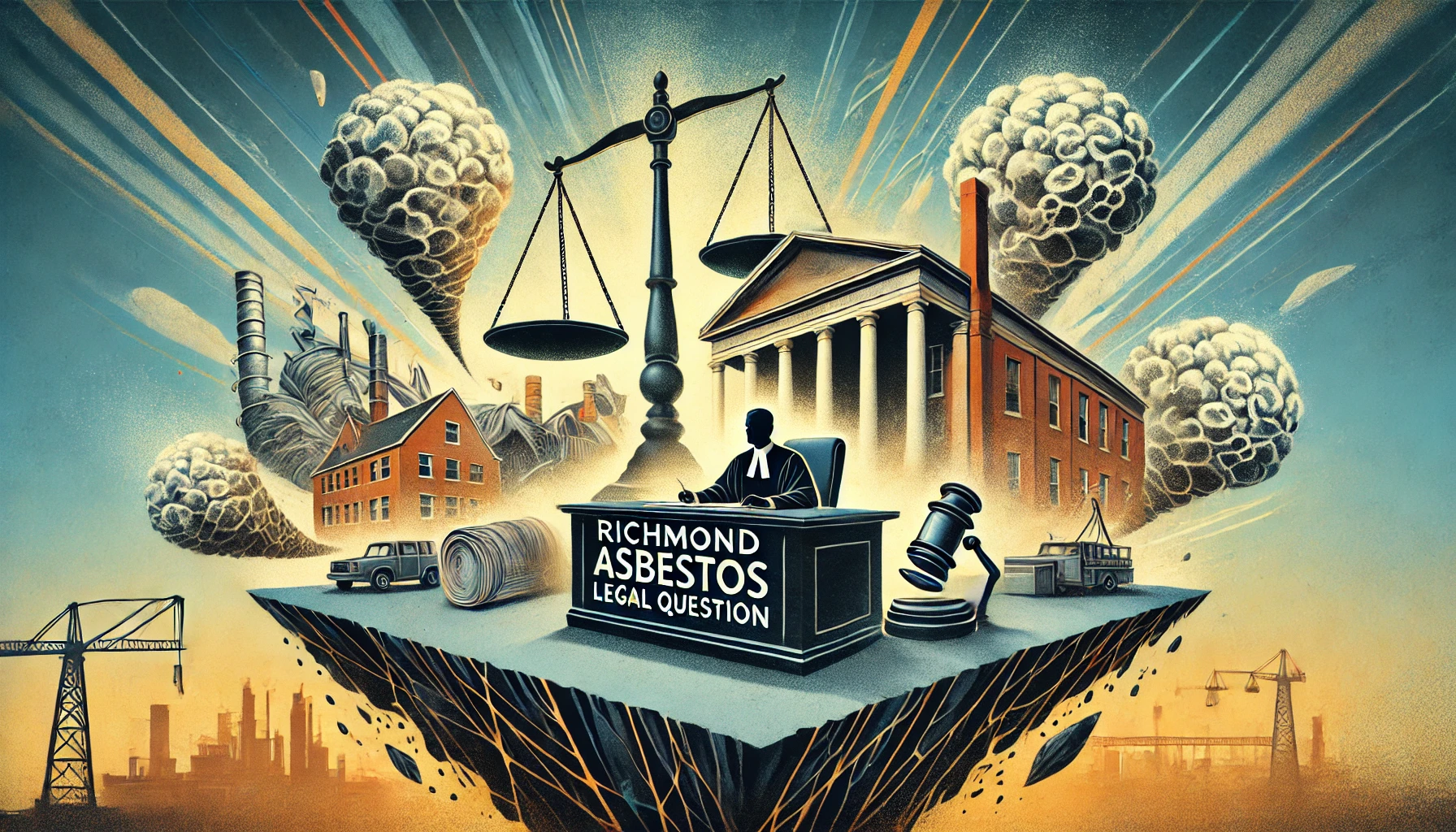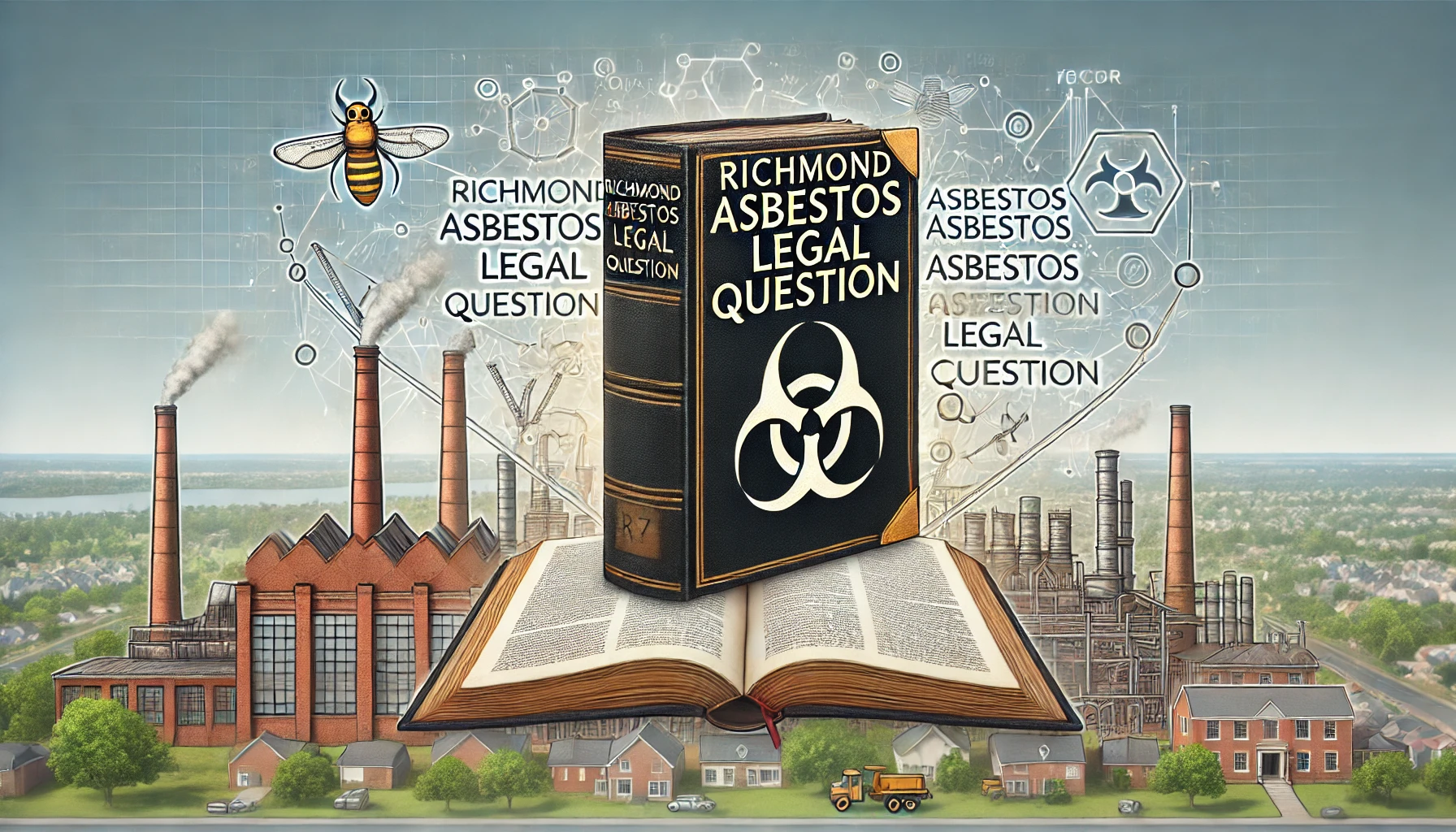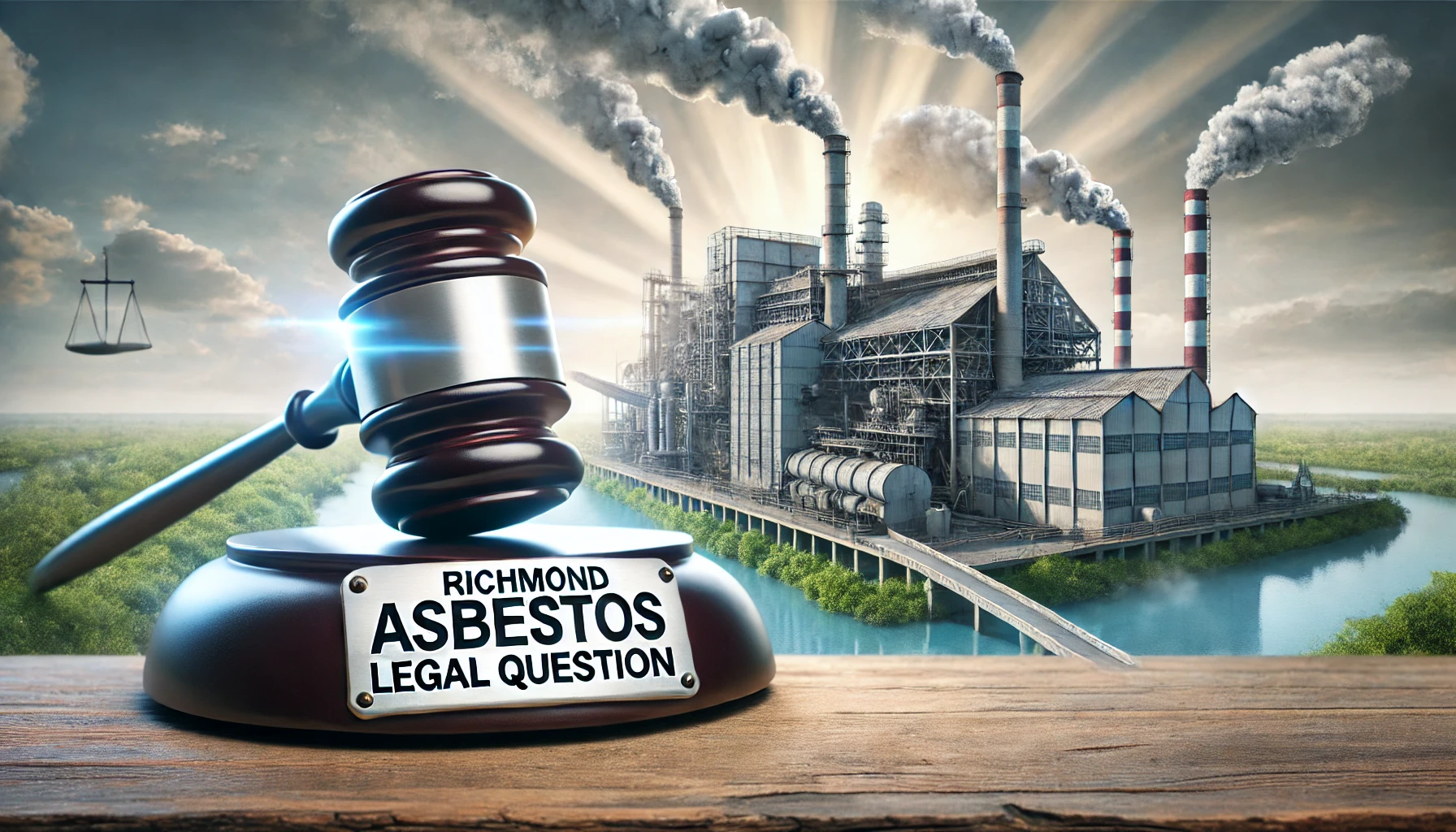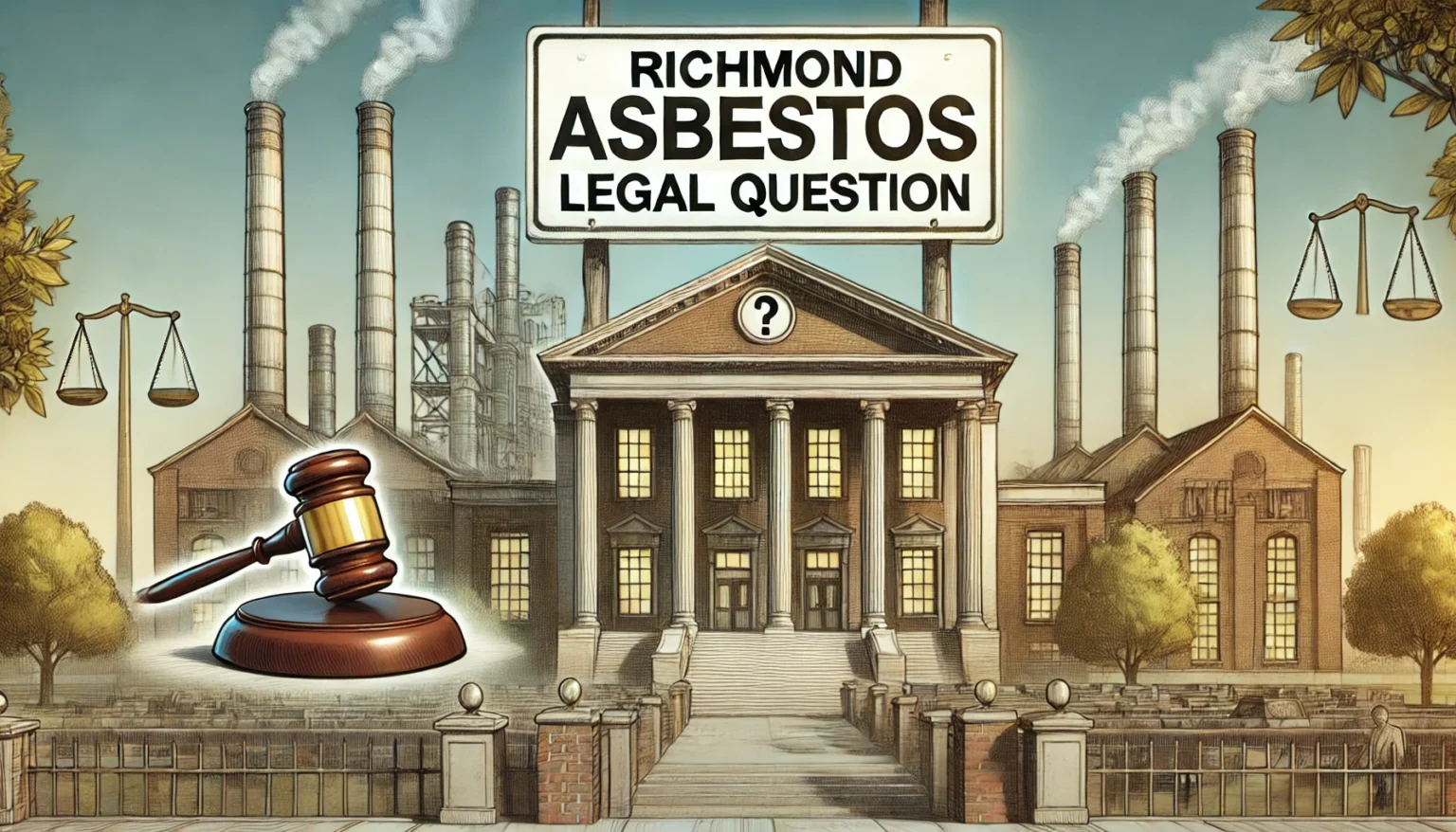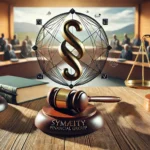A naturally occurring mineral, asbestos was formerly heralded as a “miracle material” because of its affordability, durability, and resistance to heat. For decades, it was widely used in industries like construction, shipbuilding, and manufacturing. However, its dangers became evident when asbestos exposure was linked to severe health problems, including mesothelioma, lung cancer, and asbestosis. Addressing the Richmond asbestos legal question is crucial, as asbestos remains a pressing legal and health issue in Richmond, Virginia. Victims of exposure often seek legal recourse to cover medical costs, loss of income, and other damages. Understanding the sources of exposure, legal options, and recent developments is vital for victims and their families.
Health Risks and Impacts of Asbestos
Asbestos exposure occurs when fibers are inhaled or ingested, leading to various life-threatening illnesses:
- Mesothelioma: A rare and aggressive cancer affecting the protective linings of the lungs, abdomen, or heart. Nearly all of the causes are related to asbestos exposure.
- Lung Cancer: Prolonged asbestos exposure increases the risk of developing lung cancer, particularly for smokers.
- Asbestosis: A chronic lung disease resulting from the scarring of lung tissues due to asbestos fibers.
- Other Cancers: Cancers of the gastrointestinal system, ovaries, and larynx are associated with asbestos exposure.
Symptoms, including coughing, chest pain, fatigue, and shortness of breath, often take decades to appear. This delayed onset complicates diagnosis and legal claims.
Common Sources of Asbestos Exposure in Richmond
Asbestos exposure can occur in several ways:
Workplaces:
- Industries such as shipyards, power plants, construction, and manufacturing were heavy users of asbestos-containing materials.
- High-risk occupations include plumbers, electricians, mechanics, and HVAC workers.
Residential Areas:
- Asbestos may be present in insulation, roofing, flooring, and ceiling tiles in homes and structures built before to the 1980s.
- Renovations or demolitions of older buildings often disturb asbestos, releasing fibers into the air.
Environmental Exposure:
- Improper disposal of asbestos-containing materials or natural asbestos deposits in the environment can pose risks.
- Secondary exposure is also a concern, where family members of workers are exposed through asbestos fibers on clothing or tools.
Legal Rights for Asbestos Victims
Richmond residents exposed to asbestos have legal options to seek justice:
Personal Injury Claims:
- Filed by individuals diagnosed with asbestos-related illnesses.
- Victims can claim compensation for medical bills, lost wages, and pain and suffering.
Wrongful Death Claims:
- Filed by families of individuals who died due to asbestos-related diseases.
- Covers loss of income, funeral expenses, and emotional suffering.
Product Liability Claims:
Filed against manufacturers of asbestos-containing products for failing to warn users of potential health risks.
To pursue a claim, victims must demonstrate that asbestos exposure directly caused their illness.
Legal Processes and Challenges
Filing an asbestos-related lawsuit involves navigating several steps:
Statute of Limitations:
- Virginia law generally requires claims to be filed within two years of diagnosis or discovery of the exposure.
Proving Exposure:
Victims must provide:
- Medical records confirming an asbestos-related disease.
- Employment history showing work in high-risk industries.
- Evidence linking the disease to specific asbestos-containing products or materials.
Complexity of Cases:
- Asbestos cases often involve multiple defendants, as exposure may have occurred in various workplaces or through different products.
Compensation Options
Victims of asbestos exposure in Richmond have multiple avenues for compensation:
Asbestos Trust Funds:
- Companies responsible for asbestos exposure that filed for bankruptcy were required to establish trust funds for victims.
- Over $30 billion remains available nationwide in these funds.
Settlements and Trials:
- Many cases are resolved through out-of-court settlements for faster payouts.
- Trials may result in higher compensation but take longer and involve more uncertainty.
Government Benefits:
- Veterans exposed to asbestos during military service can apply for VA benefits.
- Workers’ compensation may cover occupational exposure claims.
Responsibilities of Employers and Property Owners
Richmond employers and property owners have legal obligations to protect workers and residents from asbestos exposure:
Employers:
- Provide personal protective equipment (PPE) and training on asbestos safety.
- Conduct regular inspections of workplaces where asbestos risks are present.
- Ensure compliance with federal and state asbestos-handling regulations.
Property Owners:
- Inspect and safely remove asbestos-containing materials before renovations or demolitions.
- Inform tenants and occupants about potential asbestos risks.
Failure to meet these responsibilities can result in lawsuits and penalties.
Hiring an Asbestos Lawyer
Due to the complexities of asbestos cases, hiring a knowledgeable lawyer is essential. An experienced asbestos attorney can:
- Assist with gathering evidence and filing claims.
- Navigate the legal process and negotiate settlements.
- Work on a contingency fee basis, meaning clients only pay if the case is successful.
When choosing a lawyer, prioritize firms with a proven track record in asbestos litigation and familiarity with Virginia’s asbestos laws.
Recent Legal Developments in Richmond
In 2024, asbestos litigation continues to evolve:
Notable Cases:
- Recent lawsuits in Richmond have resulted in substantial settlements, reflecting the severity of asbestos exposure.
- A landmark case involved a shipyard worker who received millions in damages for mesothelioma caused by occupational exposure.
Secondary Exposure Claims:
- Increasing focus on lawsuits filed by family members exposed through workers’ clothing or tools.
Ongoing Advocacy:
- Efforts to strengthen asbestos regulations and increase public awareness about risks are gaining traction.
Preventive Measures for Asbestos Exposure
To reduce the risk of asbestos exposure, residents and workers should:
For Workers:
- Follow all safety guidelines, including wearing protective gear.
- Avoid disturbing asbestos-containing materials unless properly trained.
- Report unsafe conditions to supervisors or regulatory agencies.
For Homeowners:
- Hire certified asbestos abatement professionals for inspections and removal.
- Avoid DIY renovations in older homes without professional guidance.
Community Efforts:
- Advocate for stricter enforcement of asbestos regulations.
- Participate in awareness campaigns about asbestos risks and safety.
Resources for Asbestos Victims
Richmond residents affected by asbestos can access various support systems:
Legal Support:
- Local law firms specializing in asbestos claims.
- Free or low-cost legal aid for low-income families.
Medical Assistance:
- Hospitals and clinics offering treatment for asbestos-related diseases.
- Support groups for patients and families.
Government Agencies:
- Environmental Protection Agency (EPA): Guidelines on asbestos safety and disposal.
- Virginia Department of Health: Resources for asbestos risk management and victim support.
Conclusion
Asbestos exposure remains a critical health and legal issue, raising significant concerns about the Richmond asbestos legal question. Victims and their families face life-altering illnesses and complex legal processes. However, with the right legal representation, timely action, and access to resources, they can secure the compensation and justice they deserve. By staying informed and advocating for stricter regulations, Richmond can work toward addressing asbestos risks and resolving legal questions for future generations.
FAQs About Richmond Asbestos Legal Questions
What is asbestos, and why is it dangerous?
Asbestos is a naturally occurring mineral used in construction, shipbuilding, and manufacturing due to its heat resistance and durability. It becomes dangerous when its fibers are inhaled or ingested, leading to severe health problems such as mesothelioma, lung cancer, and asbestosis. These diseases often have long latency periods, making early detection difficult.
Who can file an asbestos-related lawsuit in Richmond?
Individuals diagnosed with an asbestos-related disease, such as mesothelioma or asbestosis, can file a personal injury lawsuit. Families of deceased victims can pursue wrongful death claims. Eligibility typically requires proof of exposure and its link to the illness, along with adherence to Virginia’s statute of limitations, which is generally two years from diagnosis or discovery.
What types of compensation are available for asbestos victims?
Victims can receive compensation for:
- Medical expenses.
- Lost wages and earning capacity.
- Pain and suffering.
- Funeral costs in wrongful death cases. Compensation may come from settlements, trial verdicts, asbestos trust funds, or government benefits like VA compensation for veterans.
How can I prove asbestos exposure in my legal case?
To prove exposure, victims need:
- Medical records showing an asbestos-related illness.
- Employment or residential history indicating contact with asbestos.
- Documentation linking specific asbestos-containing products or environments to the illness.
An experienced asbestos lawyer can help gather and present this evidence effectively.
Do I need a lawyer to handle an asbestos-related claim?
Yes, hiring an asbestos lawyer is highly recommended. Asbestos cases are complex, involving multiple parties, medical evidence, and legal regulations. A skilled attorney can navigate the process, maximize compensation, and ensure claims are filed within the statute of limitations. Most asbestos lawyers work on a contingency basis, meaning they only get paid if you win your case.
Recommended Article:
Temu Class Action Lawsuit: All Information You Require
Santa Rosa Mesothelioma Lawyer Vimeo: A Guide for Victims
Fort Wayne Mesothelioma Lawyer Vimeo: A Guide to Finding Legal Support
Medford Mesothelioma Legal Questions and Your Rights as a Victim
Cathy Poulin Divorce Records CT: Process, Privacy, and Challenges
